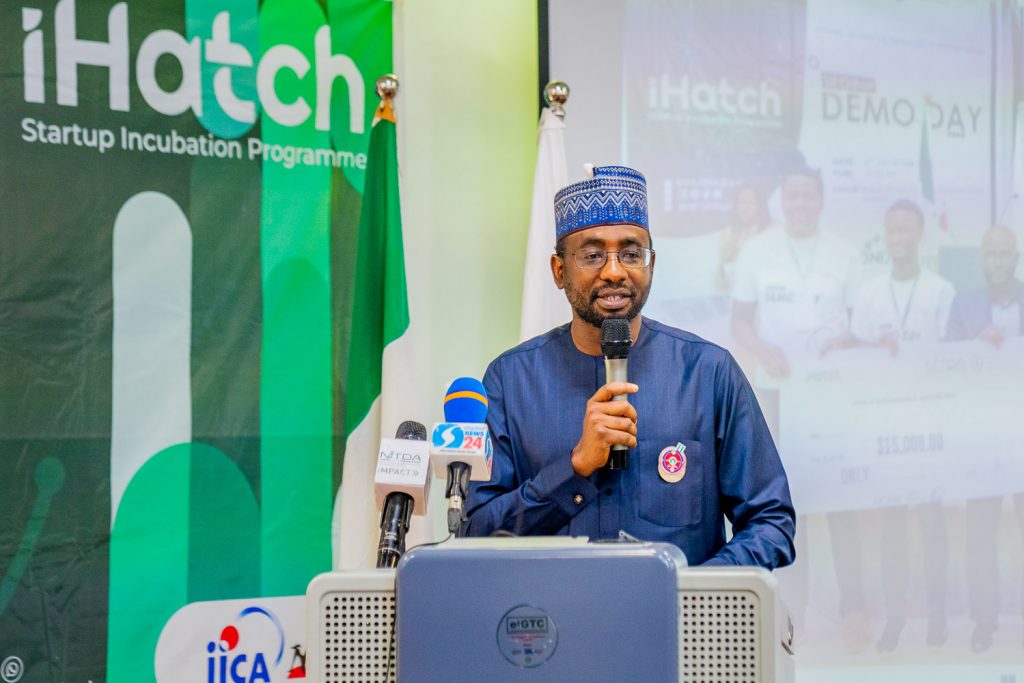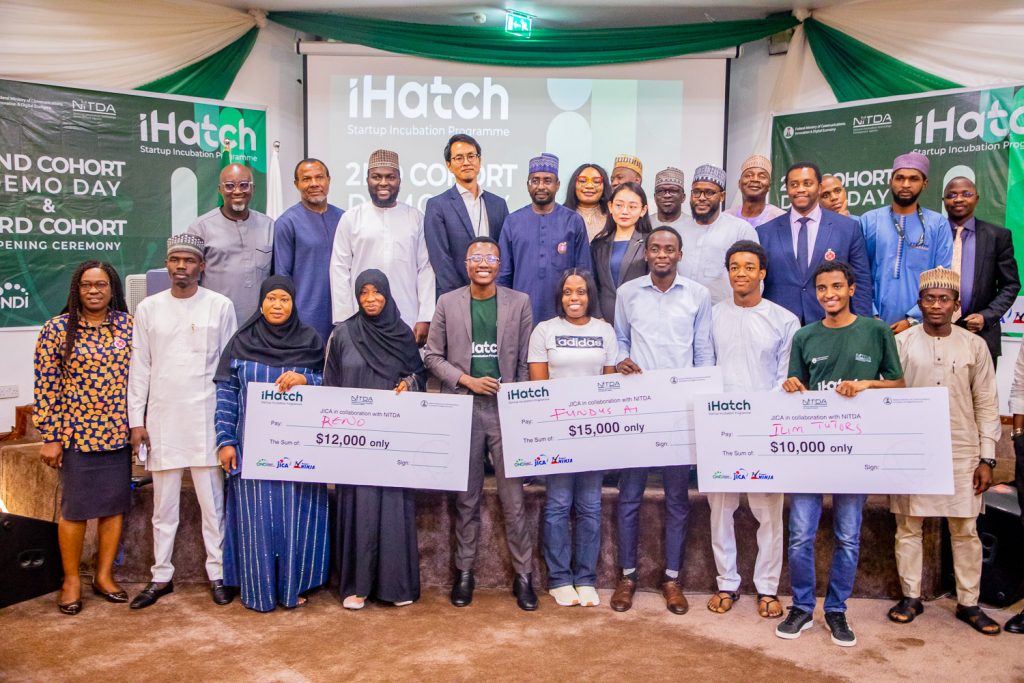Opinion
How 2019 Elections Will Shape Southwest Polls
Published
5 years agoon
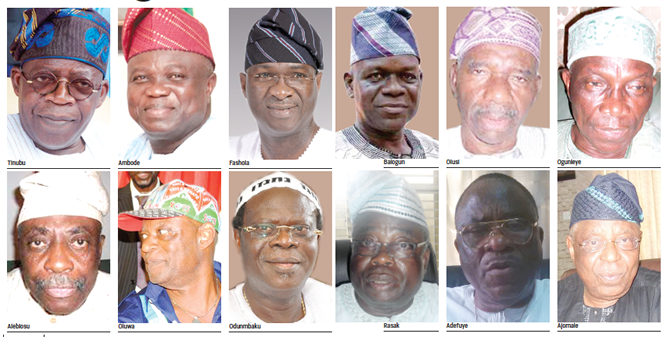
The premier newspaper in this report reviews some of the major political events that took place in the Southwest in 2018 and how they may affect the 2019 general elections
The year 2018 will certainly go down in the political history of the South West as eventful, for recording some very phenomenal developments that may shape the 2019 elections in the zone.
From Lagos to Ogun, Ekiti to Osun, Oyo and Ondo, major political actors in a bid to maneuver their opponents and remain relevant caused major upsets in the political space especially during the primaries of the ruling party, the All Progressives Congress, APC. The conundrum that trailed some of the primaries across most of the parties is yet to settle.
Specifically, the Peace and Reconciliation Committee set up by the APC to address concerns and grievance of those who lost out in the party’s primaries held between September 29 and October 6 has so far been unable to persuade aggrieved members to sheathe their swords. This means that the APC in the South West may be going into the 2019 election with a divided house.
Lagos State
Lagos State recorded a major upset in the political turf with the dropping of Governor Akinwunmi Ambode from proceeding with his second term ambition in 2019 by the state leadership of the All Progressives Congress (APC).
This was said to be despite interventions by President Muhammadu Buhari’s proxies and governors aimed at staving off what they claimed was a damaging crisis in one of the party’s strongest bases.
Political observers say Ambode lost out not because he was not performing but simply because he fell out with party leaders across the state, and was therefore tagged “not a party man”.
In his place, Babajide Sanwo-Olu, a former Special Adviser, commissioner and immediate past chief executive officer of the largest public corporation in the Centre of Excellence, the Lagos State Property development Corporation, was favoured with the governorship ticket of the party.
Mr Ambode will thus go down in the history of the state as the first governor to do one term in the current dispensation.
A similar fate befell Senator Gbenga Ashafa, Lagos East ostensibly for being at Ambode’s earlier declaration.
Some watchers of Lagos politics say there may be upset at the election, given the array of contenders from the other political parties whose profiles and personal achievements are intimidating, but unfortunately, the gubernatorial candidates have rather than base their campaigns on issues, have continued to pursue the mundane, focusing on Tinubu’s stranglehold on Lagos..
Unlike in 2015 governorship election where Tinubu’s candidate, Mr Akinwunmi Ambode had only the Peoples Democratic Party (PDP) candidate, Mr Jimi Agbaje to contend with, this time Mr Sanwo-Olu and the APC will have Mr Babatunde Gbadamosi of the Action Democratic Party, ADP; Chief Owolabi Salis of the Alliance for Democracy, AD; Mr Jimi Agbaje again and few others to contend with.
A source close to Ambode’s camp said, “It is sad though. End of one-man’s rule may finally be here. There is enormous interest in what those disaffected with Lagos APC primaries will do. It will significantly affect presidential and governorship elections results in Lagos. If they all act their conscience and hidden agenda, then an earthquake will happen in Lagos.
“It is the era of the revolution to free Lagos now. Tinubu may have installed the last governor in open elections.”
In August, the gruesome murder of the chairman of the PDP in Apapa Local government created viral ripples which had yet to settle in the party. One of the outcomes of the aftermath of the murder was the defection of the erstwhile state chairman of the party to the APC, alongside his supporters.
Ekiti State
Ekiti state experienced a major upset in the July governorship election with the immediate past governor of the state, Mr Ayodele Fayose, of the PDP being the biggest casualty. His political son and deputy, Prof. Kolapo Olusola and flag bearer of the PDP in the election reportedly lost Irepodun/Local Government Area, where Mr Fayose hails from to Mr Kayode Fayemi of the APC whom Fayose beat in 2014 with the infamous 16-0 defeat.
The battle has since shifted to the Election Petition Tribunal as Prof. Olusola headed to the tribunal to challenge Fayemi’s victory which was allegedly manipulated by the Independent National Electoral Commission, INEC and security operatives.
The two senators and five House of Representatives members still with Fayose lost in their local government areas just as the senator representing Ekiti South, Senate Deputy Minority Leader, Mrs. Biodun Olujimi, lost her Ekiti East Local Government to the APC.
House of Representatives members in Ekiti South, Akin Awodumila and Segun Adekola lost in Gbonyin and Ekiti South-West where they hail from in the same manner Senator Duro Faseyi (Ekiti North) lost his Ilejemeje Local Government to APC. Two other House of Representatives members, Thaddeus Aina and Kehinde Agboola, lost in in Ido/Osi and Ikole council areas.
Another big casualty was the Speaker of the House of Assembly Mr. Kola Oluwawole, who lost his Moba Local Government Area to APC, alongside the lawmaker for Moba 2, Mr. Badejo Anifowose.
Several commissioners and local government chairmen could not deliver their council areas in the APC hurricane that has confounded political pundits.
For the PDP, it is believed that the outgoing ruling party suffered some internal sabotage from senior members, who did not believe in Olusola’s candidacy.
The APC’s victory was largely attributed to the success of the post-primary reconciliation. Nobody defected. All the party’s leading lights were on the same page, unlike in the PDP where some key members, including former Minister of Works, Prince Adedayo Adeyeye, defected to the APC.
Osun State
The Osun State governorship election also produced some upsets following the victory of Gboyega Oyetola, the candidate of the APC winner of the 2018 election.
Mr Oyetola was returned as governor-elect at the end of a supplementary election which held in seven polling units across four local governments. INEC had scheduled the rerun after declaring the earlier election inconclusive; saying the margin of votes with which the leading candidate, Senator Ademola Adeleke of the PDP polled was less than the number of cancelled votes in the seven polling units.
The APC candidate won six of the seven units amidst allegations of harassment and other forms malpractice. At the end of the tally of votes, the APC candidate scored a total of 255,505 votes while the PDP candidate scored a total of 255,023 votes.
Despite the irregularities reported by journalists and observers, INEC officials at the collation centre all said the election went on smoothly.
But one major upset in the election was the support of the Social Democratic Part, SDP, candidate in the election, Senator Iyiola Omisore who became a beautiful bride to be courted by the PDP and the APC and against all expectations; Omisore pitched his tent with the APC, a development which gave the party its victory.
Similarly, the crisis that trailed the APC primaries in the state is yet to settle as some leaders of the party that defected to the Action Democratic Party (ADP) had not returned a situation that could undermine the victory of APC in the state if the party leadership failed to bring them back before the 2019 general election.
Pundits say the ADP governorship candidate in Osun, Alhaji Moshood Adeoti “is still influential. Yet, Adeoti is not happy with the way he was forced out of the APC before the 2018 governorship contest in the state. The APC may lose some legislative seats if the case of Adeoti is not attended to.”
Oyo State
Oyo State was not insulated from major upsets arising from the APC primaries. Like other aspirants that contested different primaries, the Minister for Communications, Mr. Shittu Adebayo, vowed not to support the APC governorship candidate in the state, Chief Adebayo Adelabu.
Mr Adebayo’s reason is that Adelabu is a stooge of the APC National Leader, Senator Bola Ahmed Tinubu.
The minister threatened that there would be no peace in the ruling APC, especially in Oyo State chapter without restitution and justice due to what he ascribed to injustice and unfairness that characterised the APC primaries in the state.
“So, restitution should come before the reconciliation. With this injustice, I will be a bastard to support the APC candidate in Oyo State in the next governorship election after I was defrauded out of the party’s primary election held last October.”
Ogun State
The refusal of the National Chairman of the APC, Adams Oshiomhole, to accept Governor Ibikunle Amosun’s preferred choice of governorship candidate in Ogun State has worsened the crisis rocking the party in the state.
The state executive of the party insisted it would only recognize Adekunle Akinlade as the APC’s governorship candidate and vowed not to work for its governorship candidate, Dapo Abiodun, in 2019 except President Muhammadu Buhari directed otherwise.
Despite all efforts by the Presidential Reconciliation Committee led by Sandra Oladele to settle all aggrieved parties including Governor Amosun, the latter have threatened to work against the APC during the 2019 general election.
Already, Amosun’s allies, who lost out in the party’s primaries, had defected to the Allied Peoples’ Movement, APM, to pursue their political aspirations.
Prominent among Amosun’s allies that defected were Hon. Adekunle Akinlade, who in vain sought the Ogun APC governorship nomination; Hon. Mukaila Kazeem, who was seeking a return ticket to the Abeokuta North/Obafemi-Owode-Odeda federal constituency seat and Chief Tolu Odebiyi, who resigned from the APC after losing the Ogun West senatorial ticket.
Observers argue that these defections may negatively affect the ruling party in the state in the 2019 elections.
On the other hand, gladiators in the Ogun State governorship contest on the PDP platform are yet to sheathe their sword. The national leadership of the party, recently, in Abuja, presented Ladi Adebutu with the symbolic party flag, as its Ogun State governorship candidate.
National chairman of the party, Prince Uche Secondus, said the party had submitted Adebutu’s name to INEC as required by law, adding that by the presentation, Adebutu is the authentic governorship candidate of the party for Ogun State.
But in a swift reaction, Senator Buruji Kashamu, who was recently recognised by INEC as the party’s governorship candidate in the state based on the ruling by a Federal High Court, said that Secondus should be held responsible “for breach of public peace and safety should there be a breakdown of law and order in Ogun State” in the build up to the 2019 general election.
”The desperation shown by Secondus is only typical of a mercenary who is hell-bent on delivering on the job he has been paid to do. His latest action was done in utter disregard to the party’s constitution and subsisting judgment of courts – from the High Court to the Supreme Court – which the INEC has since complied with.
“What is more, even if PDP presents 10,000 flags to Adebutu, it does not change the fact that the courts have pronounced the Engr. Adebayo Dayo-led Ogun State PDP Exco as the only party structure recognized by the law in Ogun State. It is merely ceremonial. It does not change the lists of candidates accepted, processed and published by INEC. It cannot change the verdicts of the High Court, the Court of Appeal and the Supreme Court. It cannot also change the wide acceptance of our aspiration by the good people of Ogun State and beyond.”
Political watchers in Ogun State say this state of affairs may likely cost the PDP the state.
Ondo State
Although, the governorship election will not be taking place in 2019, the governor, Mr. Rotimi Akeredolu, is being accused of unjust treatment and unfair play during the party primaries in the state.
20 lawmakers of the State House of Assembly, who were denied return tickets, accused the NWC of highhandedness and imposition, claiming that only six lawmakers were offered return tickets.
They claimed that Akeredolu denied them return tickets after the APC National Working Committee, NWC, had agreed to reward all the senators and federal lawmakers that supported President Buhari during the face-off with the National Assembly.
It was gathered that Akeredolu worked against the senator representing Ondo North Senatorial District, Prof. Ajayi Boroffice and his counterpart in Ondo South Senatorial District, Senator Omoyele Omogunwa. It took the intervention of the presidency before they could secure their return tickets.
At the moment, Akeredolu’s allies and aides are said to have defected to the Action Alliance, AA, to pursue their political aspiration. Dr. Tunji Abayomi, who was a senatorial aspirant in Ondo North, defected to the AA just after the primaries. Among others, Mr. Lucky Ayedatiwa, another senatorial aspirant in Ondo South, also defected.
Akeredolu had also vowed “not to support all the aspirants imposed on the Ondo APC in the contest for the national and state assemblies.
From the state of affairs in the affected states, observers say the peace committee might not be able to address diverse issues of injustice and unfair treatment, which most aggrieved aspirants alleged, characterised the APC primaries conducted and this may cause major upsets in the 2019 elections in the South West.
These major events will one way or the other shape the 2019 elections and the Southwest may never remain the same again.
You may like
-
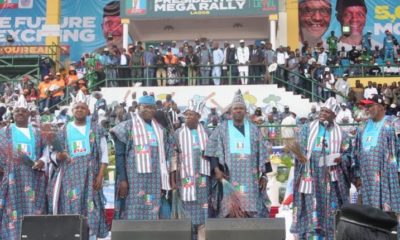

Lagos Will Give Buhari 85% Of Votes – Ambode Declares
-


Federal Government Offer N27, 000 Minimum Wage
-


UPDATE: How Musiliu Akinsanya Stabbed – Wasiu Ayinde
-


Am Not Abuse Ambode, Says Wasiu Ayinde
-
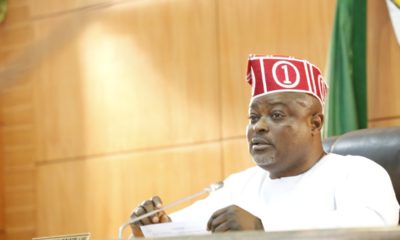

Ambode Must Appear Before Us To Present 2019 Budget, Lagos Assembly Orders
-
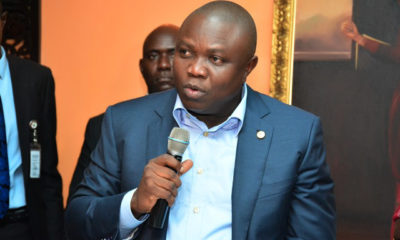

Just In: Investment In Entertainment Industry Will Improve Lagos GDP – Ambode
Opinion
NiMet’s Renewed Collaboration With Agriculture Ministry Is Good For The Nigerian Economy
Published
2 weeks agoon
May 6, 2024NiMet’s Renewed Collaboration With Agriculture Ministry Is Good For The Nigerian Economy
By Dr. Uche Nworah
The Federal Ministry of Agriculture and Food Security is a Ministry of the Federal Government of Nigeria that has the mandate to ensure food security in crop, livestock and fisheries.
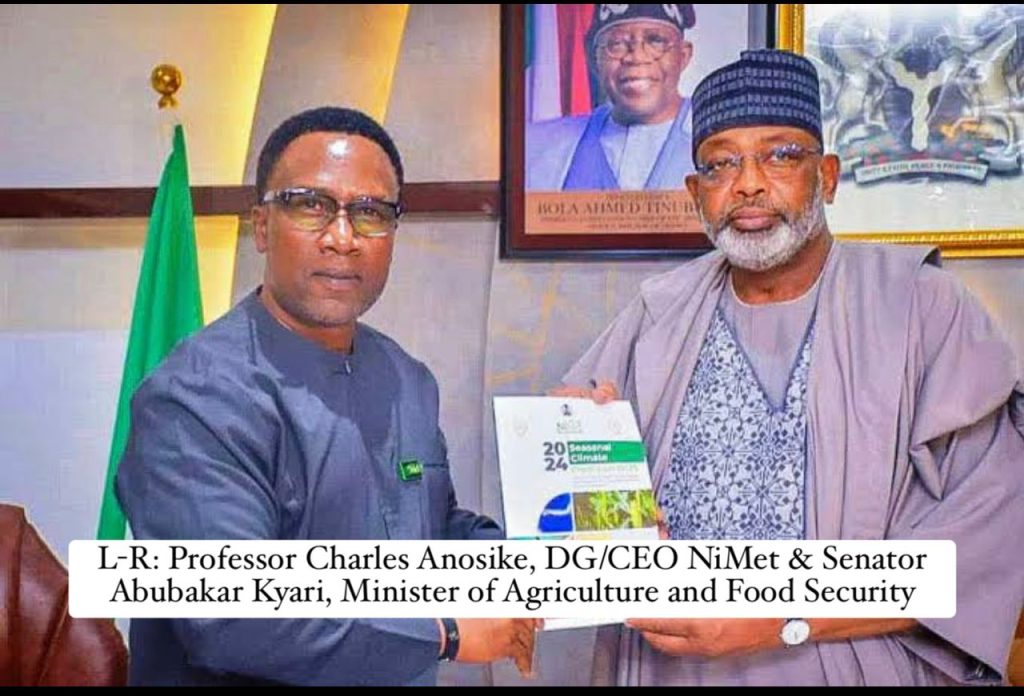
The ministry is also tasked to stimulate agricultural employment and services, promote the production and supply of raw materials to Agro- allied industries, provide markets for the products of the industrial sector, generate foreign exchange and aid rural socio-economic development throughout Nigeria.
The Nigerian Meteorological Agency (NiMet), is a Federal Government of Nigeria agency charged with the responsibility to advise the Federal Government on all aspects of meteorology. NiMet is also tasked to project, prepare and interpret government policy in the field of meteorology; and to issue weather (and climate) forecasts for the safe operations of aircrafts, ocean going vessels and oil rigs.
The Nigerian Meteorological Agency (NiMet), and the Federal Ministry of Agriculture and Food Security have in the past made moves to strengthen their existing relationship towards improving agricultural production and food security in Nigeria. The Ministry and NiMet had signed an MoU on the 3rd of March, 2022, to collaborate in a lot of areas including development of a dash-board for early warning systems, capacity building for staff of the Ministry and other stakeholders on accessing and interpreting information on meteorological parameter changes, and the provision of agro-meteorological advisory services to farmers on specific agricultural commodities. It would seem as if things quietened down after the MoU was signed.
However, at a joint press briefing on NiMet’s 2024 Seasonal Climate Prediction (SCP), at the instance of the Honourable Minister of Agriculture and Food Security, Senator Abubakar Kyari, on Tuesday, 16th April, 2024, the Honourable Minister and the Director General, Chief Executive Officer of NiMet, and Nigeria’s permanent representative with World Meteorological Organization (WMO), Professor Charles Anosike, resolved to strengthen the relationship and make it stronger. The Honourable Minister said at the press briefing; “Your presence here today, at our headquarters, marks another milestone in the deliberate and desirable collaboration and co-operation between our Ministry and your agency. Over the years, critical sectors of the economy, such as aviation, maritime, and agriculture, have come to rely on the Seasonal Climate Prediction published by NiMeT usually in the first quarter of the year. The reliability of the Seasonal Climate Prediction is indicated by increased recourse to the weather advisories contained therein”.
The Honourable Minister also said that NIMET’s Seasonal Climate Prediction can assist in shaping agriculture in Nigeria with regard to information about the pattern and duration of rainfall across the country’s agronomic zones, when to grow and length of growing season, as well as dry spells that could occasion loss of agricultural investment, where remedial measures are not taken. This in turn helps to boost the adaptive capacity of farmers. Regrettably, there have been farming seasons in Nigeria when farmers did not take advantage of the institutional advice from NIMET, and on their own misread the rainfall pattern, only to face dry spells that invariably ruined their crops and livelihoods.
In his remarks, Professor Anosike thanked the Honourable Minister for his leadership and the kind gesture to strengthen the relationship between NiMet and the ministry. “NiMet wishes to build on the database of farmers that the ministry has. Already NiMet disseminates information about seasonal climate prediction through formal engagements with farmers , and through the media such as the BBC, social media, Radio Nigeria and through national television stations.
However, a lot of gaps still exist within the dissemination space. Our goal is to reach as many Nigerians as possible with timely, accurate and actionable weather and climate information as part of NiMet Early Warning Drive”
Continuing, Professor Anosike said; “Food security requires consistent collaboration with all stakeholders. The SCP as predicted are being manifested but the challenge remains disseminating the contents to over 70 million farmers in Nigeria. Farmers need to be equipped with information and other resources to make climate resilient decisions”.
It is noteworthy and encouraging that weeks after the joint press briefing between the Federal Ministry of Agriculture and Food Security and NiMet, there are evidences of the renewed collaboration. This is positive and will benefit the Nigerian economy. Knowledge is power and if Nigerian farmers have weather and climate information translated in their local languages, they will be able to make climate resilient decisions such as knowing when to plant, what species of plants and seeds to plant and when to harvest to achieve greater yield.
The 2024 Seasonal Climate Prediction (SCP) released by NiMet provides an outlook of climate variables to help improve decision-making across all sectors of the economy. NiMet’s SCP for 2024 which was originally released in February 2024, forecasts normal on-set of rains over the northern states.Borno, Abia and Akwa Ibom states are predicted to have early on- sets. An early end to the season is predicted for parts of Yobe, Jigawa, Sokoto, Kebbi, Kano, Kaduna, Plateau, Nasarawa, Taraba, Gombe, Bauchi, Cross River, Ebonyi, Ogun and Lagos states.
A late secession is predicted over the southern states of Bayelsa, Rivers, Akwa Ibom, Ondo, Ekiti and part of Edo, Delta, Ogun, Oyo, Kogi, Kwara, FCT, Niger and Kaduna states.
Day and Night time temperatures for January to May is predicted to be warmer than normal in most parts of the country. Also, most of the North is anticipated to be cooler in March.
The Ministry and NiMet have re-intensified efforts at disseminating NiMet’s seasonal climate prediction (SCP), using FRCN network service, local radio, local and national press, national and local television. They are also using social media platforms. Applying the multi-step information flow model will require social media savvy stakeholders picking up the information online and sharing same to the farmers in their various communities.
A critical aspect of the dissemination is the physical downscaling of the SCP information to farmers in the various communities. This will require the support of the various states ministries of agriculture and NGOs operating in the agricultural space. They should support current downscaling efforts by the ministry and NiMet. From the schedule released by the Federal Ministry of Agriculture and Food Security, and NiMet, downscaling of SCP information to farmers in the six geopolitical zones have been scheduled as follows; Ondo (13th May), Imo (15th May), Delta (17th May), Niger (22nd May), Sokoto (4th June) and Borno (6th June). Farmers, civil society organizations, states ministries of agriculture, the media and other stakeholders can help in sensitizing the farmers to attend on the dates stated for their zones.
This initiative by the two MDAs is viewed as a positive step towards enhancing food security in Nigeria. It will empower our farmers, and has the capacity to mitigate the perennial challenges of climate variability. It will at the same time contribute towards sustainable resilience in the agricultural value chain.
The full SCP report can be downloaded from www.nimet.gov.ng. The report is also available from the Federal Ministry of Agriculture And Food Security Abuja, and State Ministries of Agriculture.
Dr. Nworah, a public affairs commentator wrote from Lagos.
Opinion
America, Iran and the abuse of democracy, human rights, by Hassan Gimba
Published
2 weeks agoon
May 6, 2024America, Iran and the abuse of democracy, human rights, by Hassan Gimba
“One of the shrewdest ways for human predators to conquer their stronger victims is to convince them steadily with propaganda that they are still free.” N. A. Scott, American author.
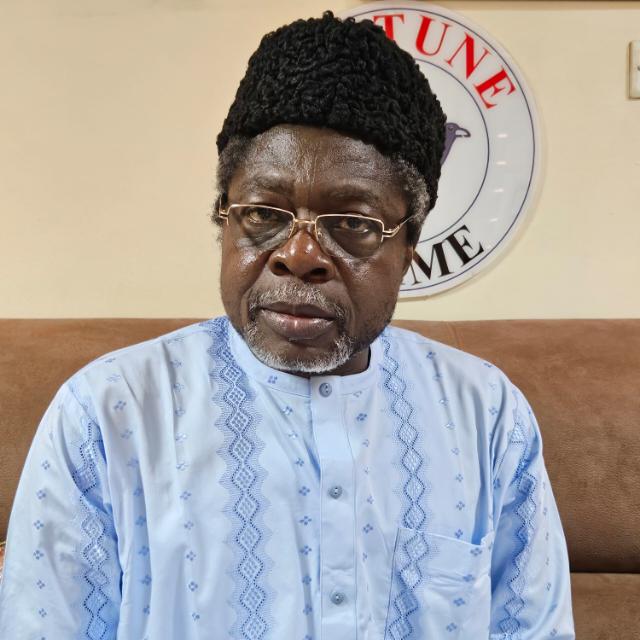
Every human being currently living on earth came to this world and saw the United States of America posing as the cradle of democracy, a bastion of freedom and a citadel of human rights.
For those of us in Africa, especially West Africa, and particularly those along the coastline, that America ruptured family cohesion, ties and lineage by forcefully taking our able-bodied forefathers and enslaving them, was either forgotten, forgiven, or both.
That after it was forced to abolish slavery by a changing world, it found a way to continue enslaving our able-bodied and intelligent youths in the name of providing greener pastures for them, which was either overlooked, not realised, or both.
As time went on, that it labelled those who wanted the best for their people as communists and demonised them, creating a bipolar world was either accepted as gospel truth by those who did not know the truth or parroted by those who were recruited to do that, or both.
That the then Eastern bloc (or communist/socialist countries), under the guidance of the Union of Soviet Socialist Republics (USSR), and its star boy, Fidel Castro of Cuba, all lined up to fight apartheid for African freedom was either lost on us or remained unappreciated, or both.
That Fidel Castro’s Cuba fought enslavers out of Angola for Angolans to taste freedom, training African youths in its universities and supplying Africa with medical doctors and free drugs while we still preferred to rush to America where we paid for everything through the nose reflected our slave mentality or lack of capacity to embrace truth, or both.
Truth is, we all grew up looking up to Uncle Sam as someone who cared for us in the third world, even when it was propping up the apartheid regime in South Africa or being a pillar of support to Ian Smith in Rhodesia, now Zimbabwe (Southern Rhodesia) and Zambia (Northern Rhodesia). Many of us did not see anything wrong in its support for Joshua Nkomo against the pan-Africanist Robert Mugabe.
For a long time, America has been working on the psyche of youths, especially in Africa, the Middle East, Asia and the communist/socialist countries to make them see their society as primitive and America as modern. The youths see their cultures and traditions as backward and archaic, their religion as stories of old, and Western depravity as the new religion.
It found a way in 1989 to infiltrate and brainwash Chinese students to rise against their country, demanding “political and economic reforms and greater respect for human rights”. The protesters gathered in Tiananmen Square in central Beijing, where they were forcefully evicted by military units, who killed a lot of them.
Tiananmen Square, or Tian’anmen Square, is a city square, measuring 765 x 282 metres, in the city centre of Beijing, meaning “Gate of Heavenly Peace”. The square contains the Monument to the People’s Heroes, the Great Hall of the People, the National Museum of China, and the Mausoleum of Mao Zedong, who proclaimed the founding of the People’s Republic of China in the square on October 1, 1949. It has great cultural significance in Chinese history.
America and its Western allies and propaganda machines did not allow what happened in China to be swept under the carpet or forgotten easily. It kept hammering on China’s “evil of repression”, that it emasculated and silenced the voice of the voiceless because that’s what students are. It told the world that China was an enemy of freedom, free speech, free association and democracy which it proclaimed as the only acceptable world order, despite its dalliance with repressive, autocratic and monarchic regimes, around the world.
Now fast-forward to 2024 and the pinching shoe is in America’s feet. Its students in no fewer than 15 universities and counting, with Columbia University in the lead, are protesting with the battle cry “Free, Free Palestine” for the freedom of Palestine that has been under Israel’s subjugation for decades.
America, the self-acclaimed doyen of freedom of association and speech, the guardian angel of democracy, is cracking down on the students for freely associating and using free speech to seek the freedom of another country. So far, scores of them have been arrested, some suspended, and some dismissed outright, while lecturers have been threatened with sack if they showed any sort of support to the students’ cause.
But that will hardly deter academics used to free speech as a first nature. One professor in the university bravely declared: “This is about a genocide being carried on with American money and with American weapons, against a people enduring generations of occupation.”
In a cheeky, and poignant, role reversal, Iran, which had suffered American instigation of its youths over time and had to deal with as it deemed fit, called on the US not to jeopardise democracy, freedom of association and free speech.
Shiraz University, a globally ranked university in Iran, just announced that it will grant scholarships to the students of American and European universities who have been expelled for supporting Palestine. It is also going to hire professors who have been fired or threatened with sacking for their stance towards Palestine.
Before the breeze blew and we saw the anus of the fowl, this was what America was doing to others all over the world – instigating youths against their fatherland, and when the country attempted to rein in its citizens, they would cry foul. They will then dole out scholarships, grants or work and Green Cards to those who fought against their country and its system.
In the words of Samuel P. Huntington, an American political scientist and academic, “The West won the world not by the superiority of its ideas or values or religion…but rather by its superiority in applying organised violence. Westerners often forget this fact; non-Westerners never do.”
Now America is receiving a dose of its medicine and it has failed to behave better than those countries it accused of truncating democracy, free association, free speech and human rights abuses.
Truth, it is said, is the only one that lasts. Falsehood and hypocrisy are just as temporary as the time it will take to blindfold the people.
What America is showing the world today is exactly the echo of the time immemorial words of Abraham Lincoln, its 16th president, who issued the Emancipation Proclamation that declared slaves forever free: “You can fool some of the people for all of the time, and all of the people for some of the time, but you cannot fool all of the people for all of the time.”
Hassan Gimba is the Publisher and Editor-in-Chief of Neptune Prime.
Opinion
IHATCH: JAPAN GOVERNMENT TASK TO LEVERAGE NIGERIA’S YOUTHFUL POPULATION- DG NITDA
Published
6 months agoon
December 3, 2023
By James Ishaku
As part of the current administration of President Bola Tinubu’s commitment towards creating meaningful opportunities for Nigerian youths, the Director General Of the National Information Technology Development Agency (NITDA), Kashifu Inuwa CCIE has called on the government of Japan to leverage on the youthful population through strategic talent partnership that will nurture and build a workforce that can be exported.
The DG made the call at the Ihatch startup incubation programme 2nd cohort demo day and 3rd cohort opening ceremony organised by the subsidiary of the agency, Office for Nigerian Digital Innovation (ONDI), in partnership with Japan International Corporation Agency (JICA) in Abuja.
Inuwa noted that the ihatch 5-month free intensive incubation programme executed by the ONDI and hosted within the National Centre for Artificial Intelligence and Robotics (NCAIR) is designed to help Nigerian tech entrepreneurs refine their business ideas through a series of coaching, lectures, and booth camps to develop scalable and adaptable business models that willfocus on youth, innovation, entrepreneurship, and technology.
He added that the incubation programme will be held simultaneously in Abuja, Lagos, Port Harcourt, Gombe, and Kano and JICA has agreed to extend the Fourth Cohort across each of the 36 States and the FCT. This is to enable wider reach and to stimulate the startup ecosystems across the States.
The DG stated that not fewer than 1,218 applications were received for the Second Cohort and the number was pruned down to 8 startups, comprising 16 persons, a Founder and Co-Founder for each startup, after undergoing levels of rigorous selection process conducted by a panel of judges, comprising experts in diverse areas of technology and innovative entrepreneurship.
He explained that the selection process assessed the startups’ ideas based on the criteria of profitability, scalability, social impact, idea technique, competitive advantage, experience, and a clearly defined future roadmap.
Inuwa further revealed that a total of 11,183 applications were received from across the 6 geopolitical zones for the Third Cohort. This culminated in the selection of the top 8 startups, comprising 16 founders in total that will participate in the Third Cohort that was launched.
He added that 16 startups that participated in the first and second cohorts of the iHatch incubation programme have moved on to achieve remarkable success in the areas of job creation, funding, participation in events, and valuable partnerships which have created a combined total of 179 direct jobs in the span of agriculture, health, education, and e-commerce sectors.
The DG further asserted that apart from the total grant of US$45,000 (US$15,000 each) for Proof of Concept (POC) to the top 3 startups in the first cohort, some of the startups have raised some funding through other sources. Xolani Health (a health tech startup from the first cohort) secured a grant worth US$155,000, BetaLife (a health tech startup from the first cohort) secured an angel investment of US$60,000, Gifty (an e-commerce startup from the second cohort) got a grant of USD$8,000 while two other startups from the first and second cohorts respectively, raised a combined total grant of US$6,000.
Inuwa affirmed the agency’s commitment to working with relevant stakeholders and partners towards the successful implementation of the Nigeria Startup Act (NSA) which will accelerate innovation and provide much-needed jobs for our teeming youths. Leaving nothing to chance in our resolve to nurture the entrepreneurial spirit in our youth to catalyze the Nigerian digital economy to the next level.
The Honourable Minister, Federal Ministry of Industry, Trade and Investment, Doris Nkiruka Uzoka-Anite, represented by National Coordinator, National Talent Export Programme, Dr Femi Adeluyi, applauded NITDA for the various initiatives and programs put in place for the advancement of the tech ecosystem in the country.
Anite noted that the NITDA DG at the Digital Nigeria International Conference 2023 edition harped on the need for Nigeria to become the talent destination of the world where countries will come to seek a workforce that will work with them towards achieving their goals and objectives.
She added that “technology is a pivotal tool in all aspects of life which cannot be overemphasized and the green transition scoreboard global total has reached about $7.13 trillion for export and about $6.6 trillion for importation, the important aspect is that 54% of these activities is digitally edible and prepares people to be effective and efficient in the different sector of the economy is laudable”.
The Minister also appreciated JICA for its relentless efforts toward the advancement of the tech ecosystem in the area of automobile, development, training, scholarships, interventions and a lot more which has impacted the citizens directly or indirectly.
The Ambassador of Japan to Nigeria, Matsunaga Kazuyoshi, represented by Yuzurio Susumu Chief of Nigeria Office in his remarks stated that Nigeria is the most popular country in Africa and the heart hub of entrepreneurship activities aimed towards the advancement of the country.
He added, “With all the challenges faced by insecurity, and limited infrastructures in the country, Nigerian startups are demonstrating remarkable creativity and resilience in developing solutions that other critical social issues in areas such as education, transportation, healthcare and finance”.
He added that the present administration has identified the transformation potential of startups and digitization making it a key factor in diversifying the Nigerian economy from its dependence on oil.
The Ambassador pointed out that startups are seen as a catalyst for business transformation, bringing fresh ideas, innovative technologies and new employment opportunities. Japan has the longest history of technological innovation and entrepreneurship has a significant role in supporting the Nigerian system.
Among those who attended were representatives from both the private and public and the top three (3) startups emerged with cash prices to Fundus AI 1st postion $15,000.00, Reno 2nd postion with $12,000.00 and Ilim Tutors 3rd postion $10,000.00 respectively.
Trending
-

 News5 years ago
News5 years agoBreaking: ‘Penalty’ Crooner Small Doctor Caught in Possession of Fire Arms
-

 News5 years ago
News5 years agoTiffany Trump Is Dating a Millionaire Michael Boulos From Nigeria
-

 News5 years ago
News5 years agoPDP Set To Cause Panic Days To Polls: FG
-

 News5 years ago
News5 years agoINEC Engages EFCC, FIU In Tracking Campaign Funding
-
News2 years ago
INEC Publish Final List of Candidates For 2022 Osun Governorship Poll
-

 Politics5 years ago
Politics5 years agoPDP Alleges Plot by APC, Presidency to Detain Its Leaders
-

 Politics5 years ago
Politics5 years agoOsinbajo Has Betrayed Yorubas, Says Afenifere
-
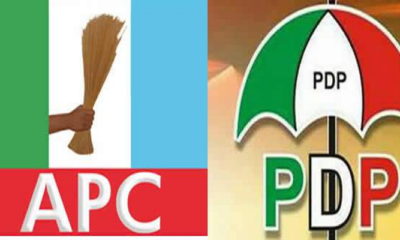
 Politics5 years ago
Politics5 years agoLagos Commissioner Decamps To PDP






